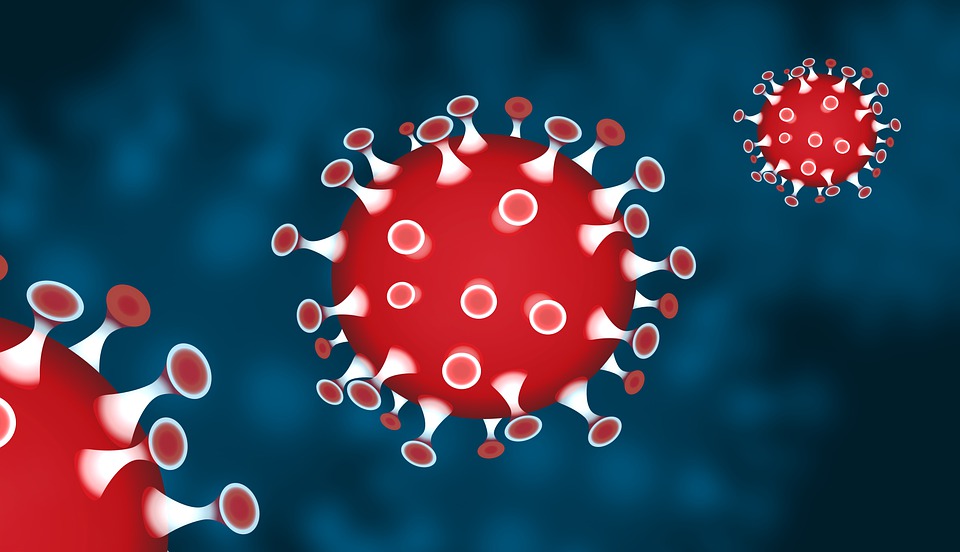The number of COVID-19 (coronavirus) cases in the United States jumped to more than 938 — with at least 29 of them fatal — according to the Center for Disease Control and Prevention (CDC). Officials at CDPH and the Illinois Department of Public Health (IDPH) have announced 19 cases of Covid-19 as of March 11.
IL Gov. J.B. Pritzker has issued a statewide disaster proclamation stating all known coronavirus patients have been quarantined at home or currently hospitalized. With COVID-19 now hitting so close to home, many are asking the question: Is the city of Chicago ready for COVID-19 the coronavirus?
COVID-19 the coronavirus is a respiratory virus that can range from the common cold to more severe illnesses. There are concerns that the elderly, people with chronic medical conditions, and those with compromised immune systems are the most at risk. The virus is spread via droplets in the air when people cough or sneeze. The virus may also be spread by contacting infected surfaces or objects and then touching their mouth, nose, or possibly eyes.
Gov. Pritzker said “While the risk to the general public remains low, we want you to know our state and local agencies and officials are using every tool at our disposal to ensure the public’s health and safety our well-guarded.” The governor said he has reached out to federal officials to “demand” more testing resources, which he said will be critical to Illinois’ response to the virus. He, along with Chicago Mayor Lori Lightfoot, has also outlined several initiatives to combat the virus.
Among them, the state is expanding its capacity to test for the virus. It will also begin testing patients with flu-like symptoms for COVID-19 at select hospitals as a precautionary measure. Commissioner of the Chicago Department of Public Health (CDPH) Dr. Allison Arwady said. “We’ll be ramping up (the ability to do) testing. … And we’ll be developing very specific guidance based on the planning we’ve done to date for child care facilities, schools, universities, businesses, communities, and faith-based organizations.” Testing patients with flu-like symptoms will expedite the diagnosis of COVID-19 cases.
Many health officials say to slow the spread of the virus by using everyday preventive strategies, such as frequent handwashing, routine cleaning of frequently touched surfaces and objects, and covering coughs and sneezes along with staying home when you’re feeling sick. There is currently no treatment or vaccine for the virus. Older adults should limit community activities, especially at large, indoor events, said Dr. Ngozi Ezike, director of the Illinois Department of Public Health.
Chicago, like many cities, is grappling with tough questions around how to deal with the virus.
Closing and cancellations:
Closing a school is a complex decision. Currently, Vaughn Occupational High School is the only CPS school closed due to COVID-19 (The students and staff there have been asked to self-quarantine).
CPS has canceled school-related trips to locations it considers at risk for coronavirus and has “strongly” recommended employees not travel to those spots.
Chicago’s major St. Patrick’s Day festivities have been canceled.
Polling places in nursing homes will be closed on Election Day, which is March 17, in a bid to protect the elderly. Officials are still working to determine where those polling places will be moved to. Please note: Gov. Pritzker is encouraging the use of the vote early process, as all polling places will still be open, or to vote by mail. He said the state is working with election officials to see if the Thursday deadline for vote by mail applications can be extended.
With events like SXSW canceling and the delay of Coachella, it’s notable that many of Chicago’s large scale music events are set to begin at the end of May. Public talks of canceling such events have not started. Chicago Mayor Lori Lightfoot said, “Fear cannot guide us at this moment. Thoughtfulness and preparation are the rules of the day.”
For more information about the coronavirus within IL, there a dedicated phone line COVID-19 hotline (800-889-3931). Or you can visit the IDPH’s website dph.illinois.gov.




